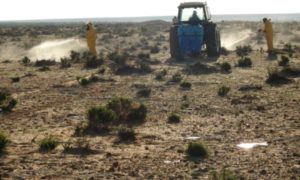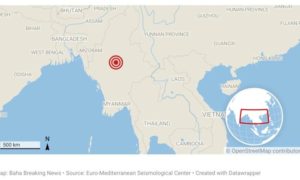Not very long ago, Tunisia registered a milk production excess. As luck would have it, the country is now struggling to meet its consumption. What is occurring, in reality, is only the result of a policy of destruction of the sector which lasted decades.
For several months, consumers have been encountering all the difficulties in the world to obtain a packet of milk. Inflation and food shortages complicate daily life for the population.
Rough road
Deficiencies and gaps
The difficulties, deficiencies and shortcomings are multiple and often connected to technical approximate conduct and often inadequate food rationing with multiple deficiencies and inadequacies.
Also, the costs are noteworthy, beginning with the price of heifers as well as production and care costs. Performance is poor, profitability is low and the sector is unattractive.
Milking, collection and transport of milk also pose problems, particularly in summer with the rise in temperature and the exponential multiplication of germs and the acidity of the milk.
Damaged value chain
The challenges encountered by Tunisia’s dairy sector have led many breeders to abandon their farms, selling their animals to speculators at low prices. These animals are then either sold through smuggling channels to neighbouring countries or slaughtered for meat. This trend poses a grave risk to the sustainability of the sector, and urgent measures are needed to address the situation.
The supervisory authorities are confronted with a critical choice: either take decisive action to save the dairy sector or risk its collapse, leading to potential socio-economic consequences. If the sector collapses, Tunisia may be pushed to import milk and dairy products, putting a strain on foreign currency reserves.
To secure the sector’s sustainability, supporting breeders is crucial. One proposed solution is a notable increase in the price of milk at the production level. This increase could be passed on to consumers, or the compensation fund could be utilized to mitigate the impact on consumers.
Key industry data
The dairy sector occupies an essential place and plays an important role economically and socially. The number of dairy farmers is estimated at 112,000 farmers, most of them medium and small farmers. The milk sector incorporates producers, collection centres and manufacturers. We count:
- 237 centers with health approval
- 11 dairy plants with a capacity of 3 million liters
- 45 industrial milk processing units
- 2 milk drying units with a capacity of 300,000 liters.
Besides, we must also note the manufacturers of concentrated feeds, veterinarians and inseminators and many other small operators such as milkmen, transporters, etc.
What's happening in Tunisia?
Subscribe to our Youtube channel for updates.










































